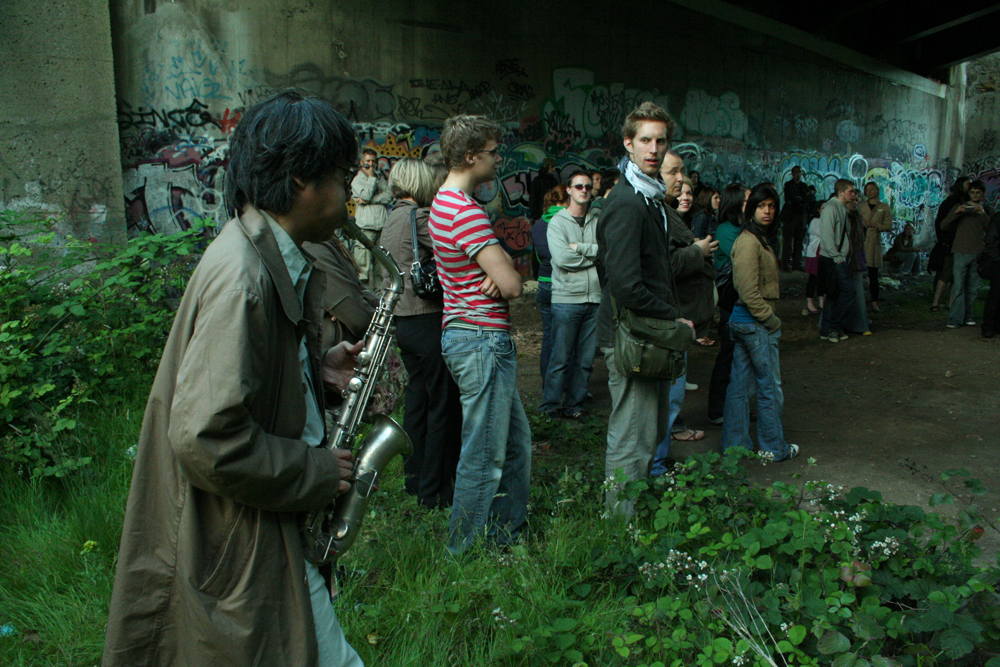
Make a Way Out of No Way: Club
Kia Labeija MikeQ Miss Prissy Pony Zion
Is it possible to dance our way out of the hardened stances and identity prisons we are locked in?
Arika have been creating events since 2001. The Archive is space to share the documentation of our work, over 600 events from the past 20 years. Browse the archive by event, artists and collections, explore using theme pairs, or use the index for a comprehensive overview.

Is it possible to dance our way out of the hardened stances and identity prisons we are locked in?
Ex-Decaer Pinga and CKDH rodeo queens; regular ladynoise hoedown gets gatecrashed by sonic chunder-huffing remedial clatter boys.

A tour with John Butcher and Akio Suzuki that set out to allow the audience to experience (and to listen to) the enviroment around them in different way.

Journalist and underground music champion Alan Cummings talks to Keiji Haino about his career and his performance the previous evening.

To Rococo Rot member Robert Lippok performing for the first time in the UK with his solo project.

A concrete walkway ending in mid air, a ridiculously tight squeeze between three office buildings and various other sites of Labour politician and council leader T. Dan Smith’s modernist regeneration projects and ‘slum clearances’ of the 1950’s and 60’s.

How black radical practices of abolition imagine a way out of the caging and mass killing of life.

A dialogical meeting of Baraka’s radical poetry and Grimes’ free jazz syncopation.

A dance party love letter to our community, expressing the joy of relation in the abstract and through actual physical proximity.
An LSD trip gone right via dense explorations of post-Fahey steel and low level drone.

A double bill of A (imageless) film of nothing but a sound recording and its transcription and a found film of news interviews about Malcolm X’s assasination, where the filmmaker decided to add nothing to it, except our attention.

Final workshop exploring work, care and class. Does the ‘care industry’ summon forth its own class? Can this ‘affective class’, in their ability to care for others, militate against the carelessness of self-interest?